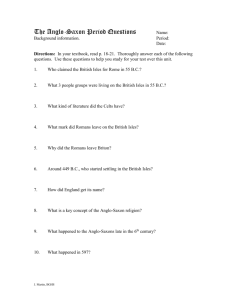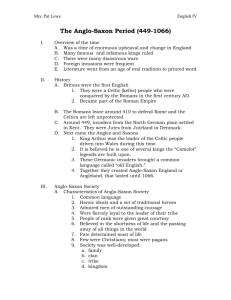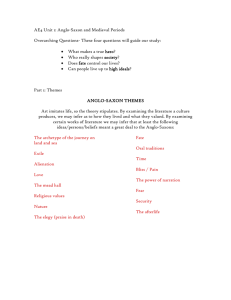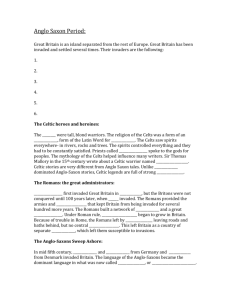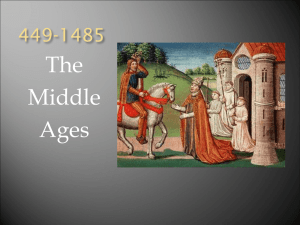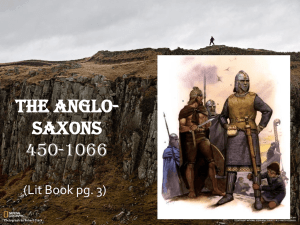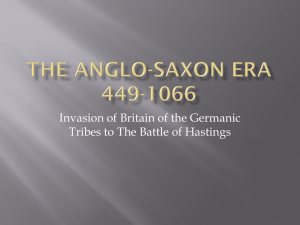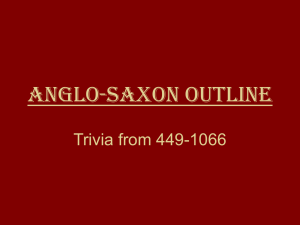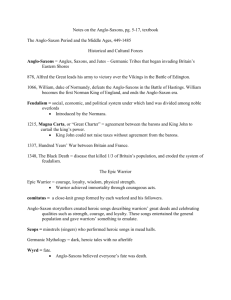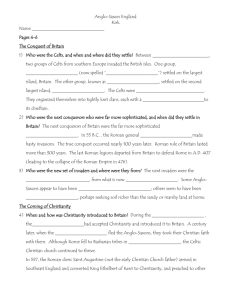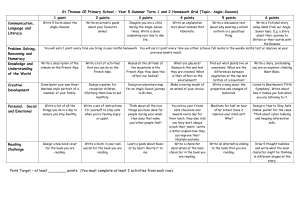Anglo-Saxon Period Notes
advertisement
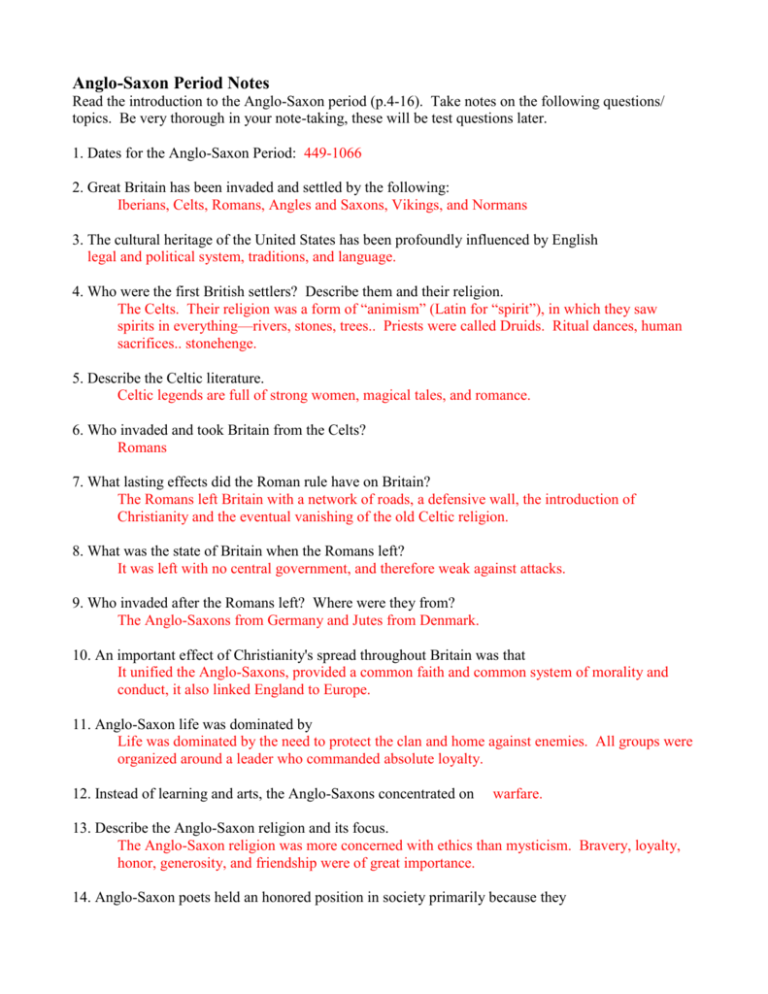
Anglo-Saxon Period Notes Read the introduction to the Anglo-Saxon period (p.4-16). Take notes on the following questions/ topics. Be very thorough in your note-taking, these will be test questions later. 1. Dates for the Anglo-Saxon Period: 449-1066 2. Great Britain has been invaded and settled by the following: Iberians, Celts, Romans, Angles and Saxons, Vikings, and Normans 3. The cultural heritage of the United States has been profoundly influenced by English legal and political system, traditions, and language. 4. Who were the first British settlers? Describe them and their religion. The Celts. Their religion was a form of “animism” (Latin for “spirit”), in which they saw spirits in everything—rivers, stones, trees.. Priests were called Druids. Ritual dances, human sacrifices.. stonehenge. 5. Describe the Celtic literature. Celtic legends are full of strong women, magical tales, and romance. 6. Who invaded and took Britain from the Celts? Romans 7. What lasting effects did the Roman rule have on Britain? The Romans left Britain with a network of roads, a defensive wall, the introduction of Christianity and the eventual vanishing of the old Celtic religion. 8. What was the state of Britain when the Romans left? It was left with no central government, and therefore weak against attacks. 9. Who invaded after the Romans left? Where were they from? The Anglo-Saxons from Germany and Jutes from Denmark. 10. An important effect of Christianity's spread throughout Britain was that It unified the Anglo-Saxons, provided a common faith and common system of morality and conduct, it also linked England to Europe. 11. Anglo-Saxon life was dominated by Life was dominated by the need to protect the clan and home against enemies. All groups were organized around a leader who commanded absolute loyalty. 12. Instead of learning and arts, the Anglo-Saxons concentrated on warfare. 13. Describe the Anglo-Saxon religion and its focus. The Anglo-Saxon religion was more concerned with ethics than mysticism. Bravery, loyalty, honor, generosity, and friendship were of great importance. 14. Anglo-Saxon poets held an honored position in society primarily because they They were honored because through their poetry, they preserved and spread the fame of the heroes. 15. The Christian monasteries served Anglo-Saxon society by The monasteries served as places of learning during and otherwise dark, war plagued time. They also preserved classic Latin and Greek literature as well as Anglo-Saxon literature like Beowulf. 16. What was the Anglo-Saxon Chronicle, and what impact did it have? It was a running history of England started by King Alfred. Because of his efforts, English became respected as a language and all of the literary works that the monks preserved became recognized as great literature. Literary Elements (use p. 49) 17. Define alliteration and include one example (use back of lit. book for example if you need to): 18. Instead of rhyming, how are Anglo-Saxon lines of poetry structured and unified? Each line has two halves divided by a caesura (a pause), in the first half, two words alliterate; in the second half, one word alliterates with the first half. 19. Define kenning and include one example: A kenning is a specialized metaphor made of compound words. Examples: “sky-candle” for sun, “battle-dew” for blood 20. A characteristic of both the Anglo-Saxon and Old Norse languages that posed problems for poets was limited vocabulary 21. Using kennings gave oral poets the opportunity to think ahead as they composed, made the poems easier to remember. 22. As kennings developed as a literary element, they became more elaborate
